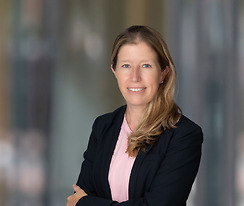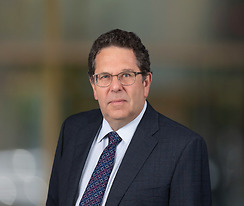Maryland Supreme Court Recognizes Rothwell Figg Pro Bono Client BACC’s Right to Assert Claims and Seek Injunctive Relief
On Friday August 30, the Supreme Court of Maryland issued its decision in the case of Bethesda African Cemetery Coalition v. Housing Opportunities Commission of Montgomery County. The case involves the Moses African Cemetery, which is located just off of River Road in Bethesda, Maryland. The Moses African Cemetery contains approximately 200 bodies, mostly of people who had formerly been enslaved on plantations in the River Road area and their descendants. The Moses African Cemetery was bulldozed in the late 1960s, and surface traces of the burial ground (such as grave markers and funerary objects) were destroyed. The approximately 200 bodies buried in the Moses African Cemetery were largely left in the ground but were paved over to create an asphalt parking lot. To this day, HOC encourages cars to continue to park on top of those bodies.
The Bethesda African Cemetery Coalition (the “Coalition”), Rothwell Figg's pro bono client, had brought suit to enjoin the sale of the land containing the parking lot to a developer, citing a statute, BR § 5-505. The Coalition argued that the statute requires the owner of land containing a burial ground to seek court permission before selling such land. One of the issues on appeal was whether that statute created a mandatory obligation on property owners with which they had to comply before selling the land (as opposed to an optional procedure). In addition, the Supreme Court of Maryland addressed the question of what common law obligations a landowner has not to desecrate bodies that are interred on the landowner's property.
Over two powerful and well written dissents by Justices Hotten and Watts, the Court found that the statute did not impose a mandatory obligation on property owners. The majority opinion did find, however, that Maryland common law prohibits the desecration of the remains of the dead and that the Coalition could amend its complaint to assert claims for such desecration and to seek injunctive and other equitable relief against continuing desecration of the Moses African Cemetery. In an 80 page decision, the majority examined cases from Maryland and other states going back more than two centuries and concluded that under Maryland common law a property owner has obligations to protect both the remains of the dead and to respect the feelings of the living. The Court wrote: “To put a finer point on it, if a seller of a qualifying burial ground sells such a property for another purpose without obtaining a judgment under § 5-505, interested parties remain able to bring not only any legal claims, but also their own equitable claims in circuit courts. And, perhaps more to the point here, interested parties need not wait for a burial ground to be the subject of a contract for sale to seek equitable relief in connection with an alleged desecration of the burial ground. Further, the descendants of people who were laid to rest in burial grounds where deeds were not executed and certificates were not issued may seek equitable relief under the common law of burial places.”
The Court further wrote: “At oral argument, counsel for the Coalition indicated that, if this court were to conclude that an action under [the statute] is not mandatory, the Coalition would seek to amend its complaint to add other claims. Given this representation and our discussion of the potential equitable remedies available under the common law of burial places, we shall direct that this case be remanded to the Circuit Court so that the Coalition may seek leave to amend its complaint" to add such claims and seek appropriate relief.
That is precisely what the Coalition intends to do.
Below please find articles covering this latest development in the case of Bethesda African Cemetery Coalition v. Housing Opportunities Commission of Montgomery County.
-
"'Graveyard Desecration'?: Md. Supreme Court Gives Descendants of Enslaved Persons Partial Victory in Property Row" by Sulaiman Abdur-Rahman for The National Law Journal (PDF below)
- "Opinion: Montgomery County shouldn't pave over a Black community's past" by The Washington Post Editorial Board for The Washington Post (PDF below)



